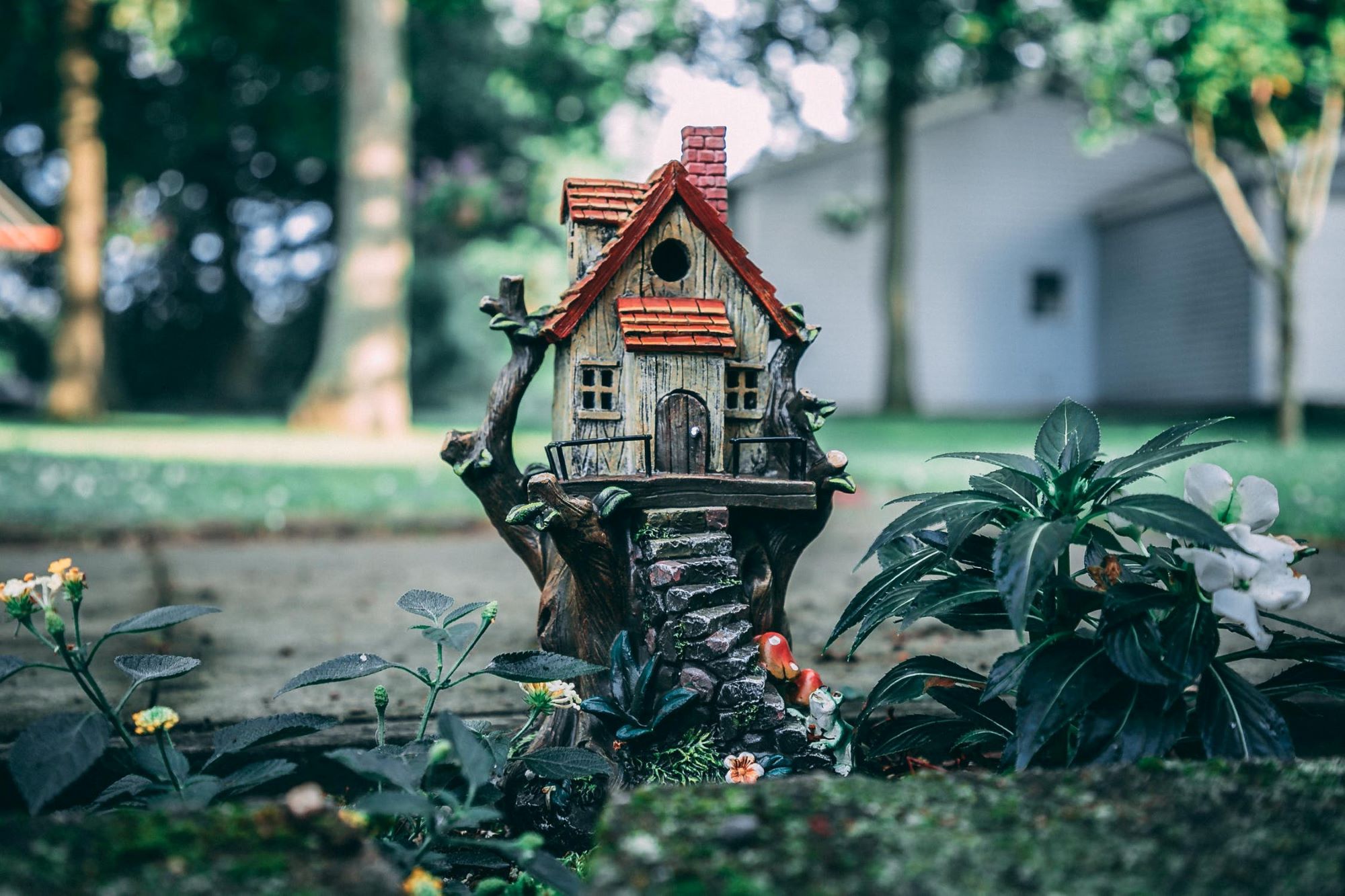Alongside short-term rental investing, house flipping is one of the most lucrative and rewarding real estate investments you could ever make.
Thank you for reading this post, don't forget to subscribe!The basics of the house flipping business are quite straightforward: A real estate investor buys a fixer-upper at a discounted price to then renovate and sell the property at a higher price, making a profit.
As house flipping is, at its core, a quick profit strategy, investors who are looking to make quick and considerable income through real estate investing will reap incredible results even if flipping houses is just a part-time or casual gig.
But just because the basics might be simple and the profits come quick, that doesn’t mean that finding a suitable financing strategy will be a walk in the park.
Even established investors might struggle with finding a financing avenue for a fix and flip venture, and if you don’t have the capital to secure a deposit, succeeding in the house flipping market will be even harder.
So, how can you successfully buy and sell your fixer-upper at a profit, when you don’t have the funds to put money down for the property straight away?
Here’s a comprehensive guide on how to flip houses with no money down!
Table of Contents
ToggleConnect with private real estate investors
One of the best ways to flip houses with no money down is to connect with real estate investors willing to sign a partnership agreement with you. They can assist you with funding by lending you the amount needed to secure a discounted property.
In return for the cash you are borrowing, the private investors will share a portion of the profits with you, as directed by the agreement you’ll co-sign.
The hardest part of purchasing a fixer-upper with funds provided by private investors comes down to finding the right business partners to work with. In fact, unless you’ve been in the real estate investing game for a while, you probably won’t have a Rolodex of experienced investors to fall back on!
Your best bet will be to find private investors through local investment group networks.
These organizations are designed to bring together local real estate professionals and hard money lenders so they can connect and collaborate on new investment projects, so you are guaranteed to find the perfect real estate investor for your needs!
The pros of working with real estate investors
The biggest advantage of borrowing from private investors is that you’ll be able to rely on an experienced professional and split property-related tasks based on your different skill sets.
This means that on top of having secure funding, you’ll also be able to somewhat share the risks and challenges associated with a house flipping deal. This can be invaluable for new investors!
The cons of private financing with investors
On the other hand, borrowing funds from private investors can be challenging if you’re new to the world of project management and contracting.
Even though you’ll be sharing tasks and responsibilities, you’ll soon find that you’re going to have a lot more pressure matching the value of the renovated property to the upfront investment your partner has made.
On top of that, they might also request a higher share of the profits than you would have expected, eating into your ROI even more.
Relying on private lenders is a big investment with its fair share of risks, so it’s usually only recommended for investors who have some previous experience in dealing with business partners and contracting.
Use crowdfunding websites
When looking up information on how to flip houses with no money down, you will likely come across crowdfunding or real estate syndication as a viable option for new investors.
Crowdfunding, in particular, allows you to connect with a group of investors looking to put capital together to fund a project like house flipping. You can set up a campaign to purchase a discounted property on a real estate crowdfunding website like Fundrise or CrowdProperty, market it until it reaches its funding goals, and pay interest on the loan to all participants.
The pros of crowdfunding
The biggest pro of crowdfunding your fix and flip projects is that you’ll be able to tap into a network of interested investors more easily than you would by researching and contacting private lenders.
You will also have a lot less pressure matching the value of their, typically much smaller, investment.
Crowdfunding can be one of the best options for inexperienced house flippers. Without an extensive portfolio to back you up you can have a hard time securing conventional loans with private lenders.
The cons of crowdfunding
On the other hand, crowdfunding can be a risky business if you don’t have much experience in real estate investing, project management, and marketing.
Finding online lenders to fund your campaign is still going to require plenty of work, as you’ll have to market your project on different online platforms to appeal to investors and reach your goal.
Not to mention, the interest you’ll be charged might work out more expensive than other types of loans!
Take advantage of real estate syndication
Similarly to online crowdfunding, real estate syndication allows you to pool together funds from a group of investors to finance your fix and flip project.
The main difference between the two, however, is that syndication requires considerable experience in project management and real estate investing as well as more legal involvement from participants. This is because you’ll likely be setting up a limited liability company (LLC) to manage roles, responsibilities, and profits within the project.
Syndication requires one investor to act as the project manager, known as the syndication sponsor, and other participants to be limited partners, generating income through flipped property appreciation, sales, and rental income.
The pros of real estate syndication
The biggest advantage of using real estate syndication to fund your project is that you’ll have a much easier time finding interested investors to participate in the funding, as there are plenty of syndicates active and looking for new projects that you can join.
You usually won’t have to deal with any of the marketing challenges associated with online crowdfunding, and if you find the right people and the right opportunity, everyone involved is guaranteed to walk away from the deal with a considerable profit.
The cons of syndication
In terms of disadvantages, real estate syndication suffers from the challenges of any other LLC business, namely the pressure of tight deadlines and the hardship of working with multiple partners.
Joining a syndicate will require a good knowledge of the local market as well as of the intricacies of large-scale project management. If you’re completely new to the business, this option might constitute a higher risk — more people to please, more problems!
Work with hard money lenders
Another good option for flipping houses with no money down is to finance your project through hard money lenders. This is usually the most common option for flippers looking to make a quick profit and pass the borrower’s vetting process even faster.
A hard money loan is a short-term loan pretty much designed for fix and flip ventures: Hard money lenders will decide whether to fund your project based on its potential for profit and your experience with flipping houses, rather than your credit score or credit history.
This means that the chance of finding a loan with no money down through a hard money lender will be quite slim if you don’t have previous experience in house flipping, as hard money lenders usually require a 2o to 25% down payment.
If you don’t have the capital to put down, in this case, you’ll be able to use equity from another property to secure a loan with no money down.
Hard money loans usually have terms of less than one year and interest rates of around 12% to 18%, plus 15 to 5% of the loan amount. They are expensive loans that focus on securing investment quickly. This suits house flippers in that they usually work on renovating their property and selling it within an equally quick time frame.
The pros of hard money loans
While the terms for a hard money loan might be a lot harder than conventional loans, the main draw of this funding avenue is the ease with which you could be accepted.
Conventional lenders will likely refuse to finance a house in disrepair, while hard money lenders mostly operate with house flippers and properties that don’t satisfy conventional guidelines.
As long as the purchase and repair cost compared to the resale value makes a profit, the hard money lender will agree to the loan quickly and with no bureaucratic red tape, given that the borrower has a portfolio of previous fix and flip projects to show their trustworthiness.
The cons of short-term loans
Needless to say, a hard money loan won’t be the right choice for brand-new investors and house flippers who don’t have a portfolio to show in place of a good credit score.
Hard money lenders require substantial equity to approve a loan with no money down, so if you don’t have the experience and equity they are looking for, financing your project through private loans might be a better option.
On top of that, hard money loans are renowned for their high interest rates and fees, so they are only really recommended for experienced flippers who know how to turn around a property fast!
Wholesale it!
Wholesaling is a great financing strategy for ambitious investors looking to take on multiple projects at a time and avoid dealing with the properties hands-on, minimizing risk.
The wholesale method involves contracting with a seller to purchase a property in disrepair at a discounted price before reselling it at a higher price to investors who want to rehab it.
When wholesaling fixer-uppers, your profit will be based on a set percentage of the final sale price, which in most cases will be between 5% and 10%.
Wholesaling is quite different from house flipping, as you are acting as an intermediary between the seller and the investor, rather than doing any of the renovations yourself.
The pros of wholesaling
The biggest advantage of this strategy lies in its low-investment nature: You won’t have to put money down, apply for loans, and deal with the challenges and risks of renovating a home.
Instead, you’ll be the link between the original seller and the flipper, without ever taking the ownership title of the property!
The cons of wholesaling a property
However, this method requires you to have an extensive list of contacts and an active network of investors to tap into when closing a deal.
As a new investor, you’ll have to work incredibly hard to secure the contacts needed to make this strategy work , and you won’t generate anything close to the same profits an investor would when renovating and reselling the same property!
Flipping houses with personal finance avenues
Finally, here’s our last piece of advice on how to flip houses with no money down: When all else fails, personal finance might help you cover the blind spots and get your project rolling!
Keep in mind that you will usually need to have substantial home equity and good credit to access avenues like cash-out refinance or a home equity loan. If bad credit or a lack of collateral is a problem, you’ll definitely fare better with options like private lending, syndication, or even hard money lending.
But if you are a homeowner who has just started flipping houses for the first time, here is a quick overview of some more conventional ways you can secure funding for your fix and flip business without considerable capital to tap into or money down:
Home equity loan: This is a good avenue for those with substantial home equity, as you can take out a loan to cover the down payment as well as the purchase and renovation costs.
Cash-out refinance: If you’re lacking equity but you’re a homeowner, you can refinance your home and take cash out of your equity to cover a down payment.
Borrowing from a 401(k): If you’re already secure in your retirement funds, you can take out a loan against your 401(k) to buy an investment property.
Credit card advance: You could also get a cash advance to cover a down payment using your credit, but this could have serious repercussions on your debt-to-income ratio!
Looking for other ways to create income with your investment property?
House flipping is a rewarding business that can help you step into a professional real estate role when done full-time, or simply help you save money for a rainy day further down the line.
However, this line of work does come with a set of unique challenges and risks, so investing with no money down might not be worth it in the end if any of these financing strategies don’t pan out as planned.
Luckily, there are plenty more ways to succeed in real estate investing, so if you decide that flipping is not the right call for your risk tolerance and set of skills, there are plenty of other options.
You can become a landlord or turn your property into a short-term rental for reliable passive income, and if you’re yet to purchase your first investment property, a budget as low as $50,000 might be enough to secure an investment that is not in need of extensive repairs.
Whatever your goals, The Short-Term Shop will have your back with all the tips and tricks of the trade you could ever nee



